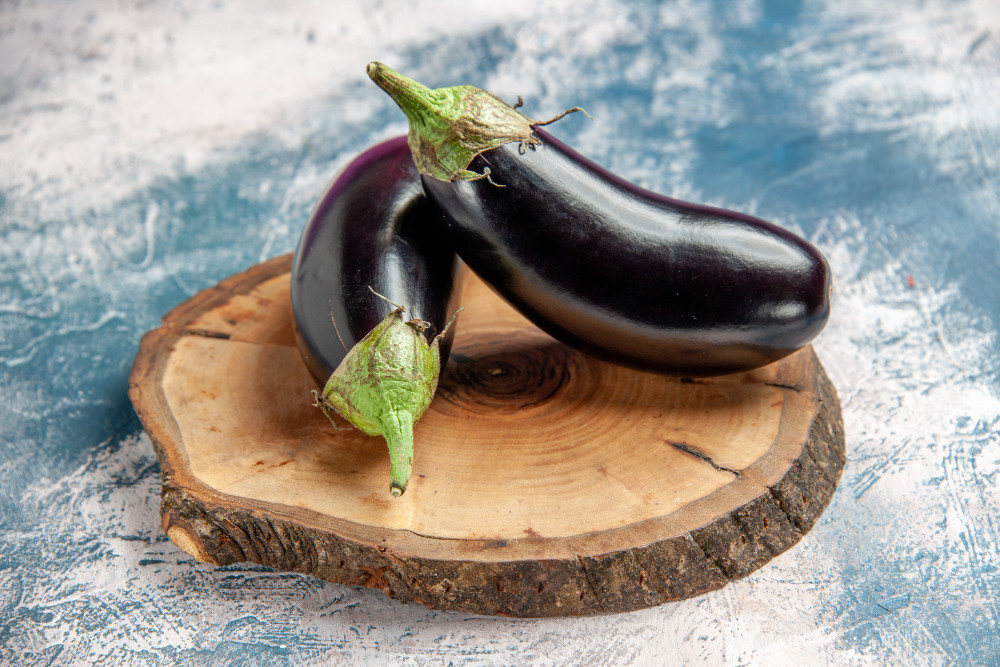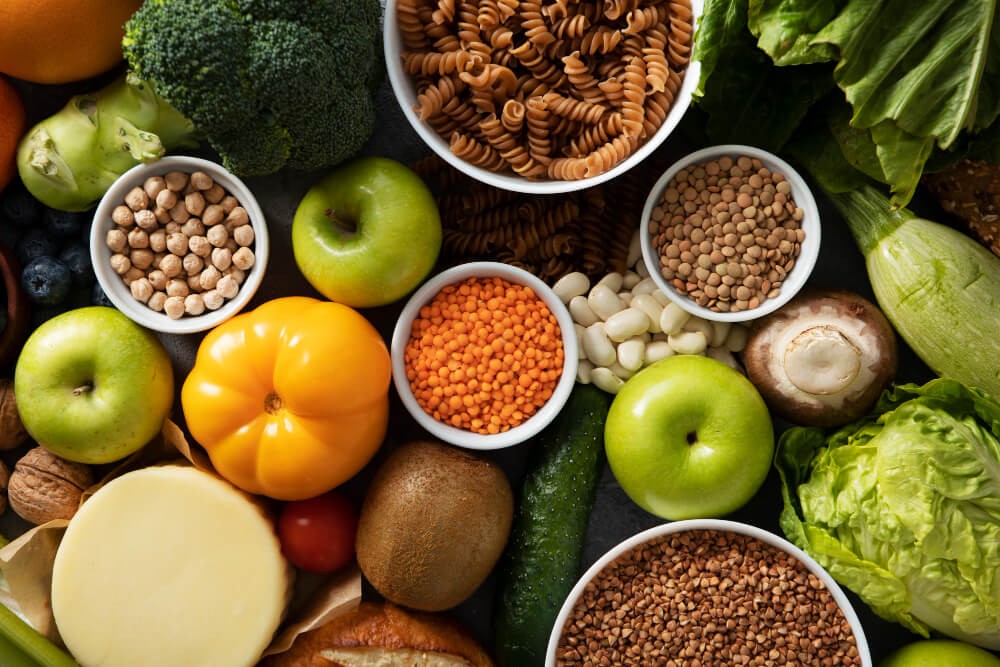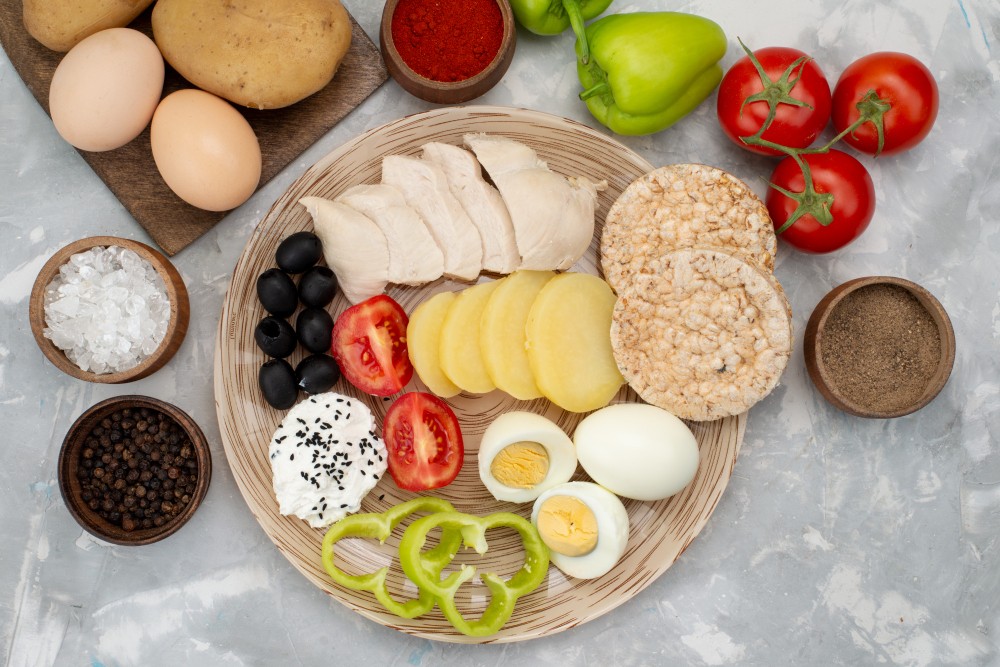While many of us tend to peel the skin off fruits and vegetables for easier consumption, it's worth noting that some varieties can be enjoyed with their skins intact. What's more, these skins often harbour a wealth of nutrients that are beneficial for our bodies. So, next time you're preparing your produce, consider leaving the skin on for an extra boost of nutrition!
Fruits and Vegetables with Edible Skin
Potato
When preparing potatoes, most of us choose to peel the skin. However, in some preparations, the skin is not peeled but served. Just like the flesh of the potato, the skin contains fiber and many nutrients, such as vitamins B and C, potassium, calcium, and iron. In boiled potatoes, the skin can contain:
- Up to 175% more vitamin C.
- 115% more potassium.
- 111% more folate.
- 110% more magnesium and phosphorus than peeled potatoes.
Eggplant
You can prepare eggplant by peeling off the skin or leaving the skin attached to the pulp. Eggplant skin has many antioxidants, especially darker-colored varieties like purple eggplant. One of the antioxidants present in purple eggplant is nasunin, which is believed to protect cells from free radicals that are harmful to the body. If you want to prepare eggplant with its skin, be careful if you fry it too dry because it can cause the texture of the eggplant to become tough.
Read more: Which Is Healthier, Cut Fruit Or Fruit Jus?
Watermelon
Watermelon is a fruit that is rich in nutrients and water content. It also contains vitamin A, vitamin C, potassium, and magnesium. Although the green part of a watermelon is often discarded and not eaten, the green rind of the watermelon is edible and beneficial for the body's health.
Watermelon rind contains the amino acid citrulline, which helps remove nitrogen from the blood and relieves muscle pain. In addition, the rind is also rich in fiber content.
Apple
Some people prefer to eat apples with the skin on. Apple skin has more vitamins and fiber than the pulp inside. Apple fiber is beneficial for stopping cholesterol buildup in the blood vessels. Apple peels also contain an antioxidant called quercetin that can help the brain and lungs work better.
Peach
Peaches have smooth skin that is rich in antioxidants and vitamins. Peach skin is also rich in fiber and vitamin A. It also contains carotenoids, an antioxidant, and provitamin to help reduce cataract risk.
Read more: The Danger Of The Fruitarian Diet, Only Eating Fruits All Day
Kiwi
When looking at the skin of the kiwi, many people want to peel off the skin with fine hair. However, the skin of kiwi has various health benefits.
Kiwi skin contains a lot of fiber that can help relieve bloating and facilitate bowel movements. In addition, the skin of kiwi is also richer in antioxidants than the pulp itself. Kiwis have vitamin E, C, and polyphenols that can boost immunity and help fight inflammation.
Kiwi skin is also a source of folate, which helps convert carbohydrates into glucose to produce energy. Despite its health benefits, some people should not consume kiwi fruit, especially if they have a history of kidney stones.
Some fruits and vegetables can be consumed without peeling the skin. Don't forget to wash fruits and vegetables before eating. Although they have nutrients, whether you want to consume them depends on your taste. If you have questions about food processing, you can consult a nutritionist or utilize the consultation feature in the Ai Care application.
Want to know more about tips and tricks for health, first aid, and other home treatments? Click here!
- dr Hanifa Rahma
Laguaite, M. (2023). Fruit and Veggie Skins You Can Eat. Available from: https://www.webmd.com/diet/ss/slideshow-skins-you-can-eat
Petre, A. (2023). Should You Peel Your Fruits and Vegetables?. Available from: https://www.healthline.com/nutrition/peeling-fruits-veggies
Streit, L. (2020). Can You Eat Peach Skin, and Should You?. Available from: https://www.healthline.com/nutrition/can-you-eat-peach-skin
WebMD Editorial Contributors. (2022). Health Benefits of Eggplant. Available from: https://www.webmd.com/diet/health-benefits-of-eggplant
Cleveland Clinic. (2023). Surprise! Kiwi Skin Is Edible — and Really Good for You. Available from: https://health.clevelandclinic.org/can-you-eat-kiwi-skin/











